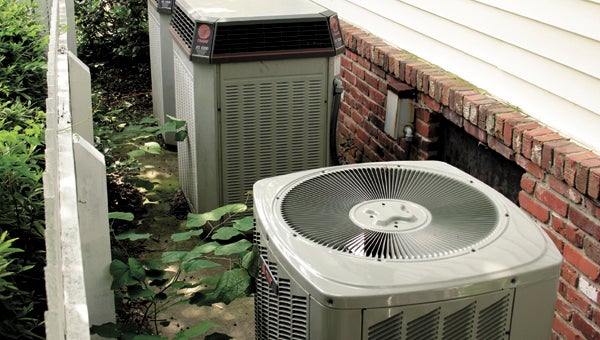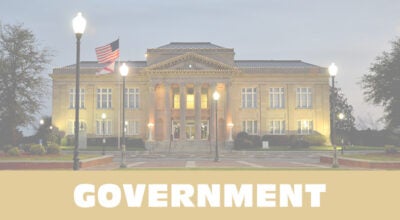High demand hasn’t peaked use yet
Published 11:59 pm Thursday, August 11, 2011

Local electric utilities offer home energy audits, which can show consumers things they need to do to help improve their energy efficiency, thus savings them money.
Triple digit heat indexes have pounded Covington County nearly all summer long, creating a huge demand for air conditioning. But it hasn’t been enough to surpass output records for local utilities companies.
Local generator, PowerSouth, said they are ready to meet peak demand this summer, which hasn’t happened yet.
“We are well positioned to meet the energy needs of our distribution systems this summer when demand is at its highest,” said Damon Morgan, PowerSouth vice president of power supply. “Sufficient generating capacity, purchase power agreements and demand side management resources are available to help manage expected peak usage.”
This summer, PowerSouth has forecasted a peak of 1,897 megawatts, but hasn’t yet reached it, compared with the 2010 summer peak of 1,997 megawatts, which occurred on Aug. 1.
The summer peak, which is the highest point of demand during the season, usually occurs between June and August between 4 and 6 p.m.
Peak loads are measurements of the average total electric demand by consumers for the highest one-hour period.
One mega-watt of electricity can serve about 800 to 1,000 homes, Morgan said.
Between PowerSouth’s existing generation and long-term and short-term contracts, the company has approximately 2,429 megawatts of resources available to help meet summer peak demand, Morgan said.
“Due to our high residential load, extreme weather is the dominant factor when it comes to producing electricity during times of high demand,” Morgan said. “High temperatures could produce peak loads this summer that rival those of recent years.”
Morgan said that even though forecasters show overall growth in electricity consumption slowing as a result of the economic slowdown, most consumers will continue to utilize the most energy during times of extreme temperatures.
Andalusia Utilities Department Office Manager Cathy Alexander said with heat indexes more than 100 degrees, it’s been a tough summer to keep cool, and she suggested consumers try tips to cut down on their power bills.
“(You can do) simple things like keeping curtains and blinds closed to keep out the heat and making sure that doors are not left open to let the heat in,” she said. “It’s hard to turn up that thermostat, but the longer that those air units run, the more energy that is used.
“When my children complain it’s hot in the house, I tell them to go outside for 30 minutes and come back in, it feels really good then,” she said.
Covington Electric Cooperative spokesman Mark Parker said CEC strives to educate its members about the benefits of making wise energy choices and implementing energy efficiency practices through a number of ways.
“One of the best communication resources we have is our magazine Alabama Living, which allows us to communicate directly with the membership on a monthly basis,” he said. “Several energy efficiency articles and advertisements are published each year in the magazine.”
Parker said CEC also provides energy saving tips online and through radio advertisements.
“Every CEC office has free energy saver guides available in the lobby areas, and we will mail those to members upon request,” he said. “Another service the co-op provides at no charge to our members is a free energy audit.”
During the energy audit, a member service representative comes to a member’s home to evaluate the home’s energy usage and identify problems and make suggestions to improve efficiency.
“Electric bills can be greatly impacted by the weather and that’s why energy efficiency and usage awareness is so important,” Parker said. “When we experience extreme highs like we’ve seen this summer, air conditioning units are going to run longer. Most of the bill inquires we receive can be directly correlated with temperatures.”
Here are some no cost energy-savings tips.
• Change your air filter regularly.
• Set your thermostat to 68 degrees in winter and 78 degrees in summer.
• Keep electronics and small appliances unplugged when not in use.
• Keep showers to five minutes.
• Reduce the water temperature on you water heater.
• Turn lights off when you leave a room.
• Wait until you have a full load to run the dishwasher and clothes washer.
• Only heat and cool rooms that you use, close vents and doors to unused rooms.




